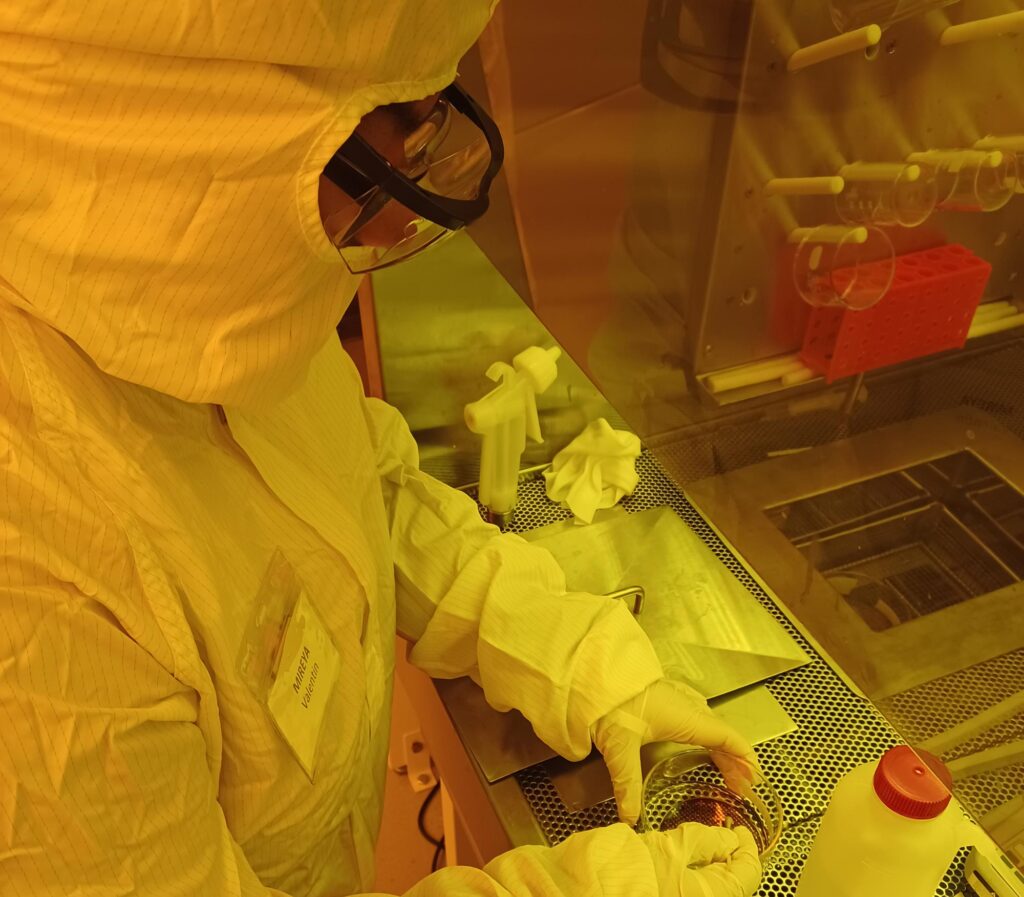Mireya’s Journey
October 27, 2025 | By NRCF Team

“My parents didn’t have a lot of money growing up, and even now we are still poor—technically, we live below the federal poverty line. That really motivated me to want to go to college, so I can help give my family a better life—a stable life—instead of worrying every day and asking, ‘Do we have enough to eat? Can we keep living in this place?’ ” said Mireya Valentin, a National Rainbow College Fund (NRCF) scholarship recipient.
In her third year at East Los Angeles College (ELAC), Mireya is a first-generation college student whose roots run deep in downtown Los Angeles. Born and raised in the heart of LA to Mexican immigrant parents who arrived 30 years ago, she carries the hopes and dreams of her family.
Community College: A Strategic Decision
Despite acceptance to most University of California and California State University campuses, Mireya chose community college for practical reasons. “Even with all the financial aid I was given, I couldn’t afford to pay for everything. So I decided to go to ELAC,” she explains. “This will help me save money, get more experience, and get my general education requirements out of the way.”
The NRCF scholarship has become crucial support, helping fill gaps that traditional financial aid doesn’t cover—textbooks, supplies, and daily necessities like food that can derail determined students.
Privacy Matters
Mireya appreciates that NRCF doesn’t require students to be “out” to receive support. “I have friends who unfortunately don’t have the same type of support from their family as I do. It is very thoughtful of NRCF to have the privacy component in case someone might need it! It warms my heart. People are still queer even if they are in the closet! Even if they have to code switch in front of some people. With other organizations, you have to come out fully to apply. It rubs me the wrong way!”
Though she has a girlfriend of one and a half years, Mireya remains aware of safety concerns. “I can be scared to hold hands in a crowd because somebody in that crowd might be dangerous. It’s wonderful what NRCF is doing. Even if I don’t need the extra precautions, other people might need it. Even if it’s just one person, it makes it worth it!”
Family Sacrifice and Support
Mireya’s older brother made a sacrifice for his family. “He wasn’t able to go to a university—he had the same problem of not having enough money. We were really struggling because of the pandemic in 2020, and he dropped out. Now he’s working at a retail store, supporting our family that way. I am the first person in our family to be in college for this long in our family.”
Her parents, though separated, both work. Her father works as a street vendor selling fruit, ice cream, and grilled corn, and is a primary source of support to Mireya. Her mother works as both a plumber and an electrician.
Embracing Identity
“I came out to my mom at Christmas. I wrote her a note and gave her a mug. I didn’t know at the time that I was a lesbian. The note said: ‘Mom, I might also like girls and I also might like boys. I hope you still love me. She pulled me aside and said that she didn’t care who I dated as long as I got a college degree. I assured her I would!”
Her father’s support came naturally too. His nickname for her in Spanish is “princess,” and as he told her, “You will always be my princess in life, no matter who you love.”
Real Impact
The NRCF scholarship makes concrete differences in Mireya’s life:
“After five years, my backpack is worn out, and I want to get the same backpack. It is too much money for me to justifiably spend. I was going to buy a super cheap one that I hoped would last the year. But now I’m able to get a better backpack that will last another five years—I can keep it until the end of my post-secondary education.”
Perhaps most importantly: “Another big one is food. I will be able to have a balanced diet this semester. I have to eat a lot of cheap fast food. I cook every day, but even then it’s very hard to find consistent good vegetables, fruit, and healthy stuff. I was feeling really bad because of the processed food I was eating. I didn’t want to eat like that, but had to because we didn’t have enough money to get good food. I will demolish a carrot if you put it in front of me! Now NRCF enables me to get fruits and vegetables in my diet.”
Looking Forward
Growing up in downtown LA, Mireya learned the meaning of community—neighbors who cared for her family, corner store owners who knew everyone by name. That spirit of mutual support drives her volunteer work at a food bank near Skid Row, where she learned to cut hair to help unhoused people cope with LA’s heat.
Through NRCF, Mireya is pursuing her engineering dreams while building a foundation to lift up her entire family and community, carrying forward the values of resilience, compassion, and determination that have shaped her journey.
Here’s how you can support LGBTQ+ students: